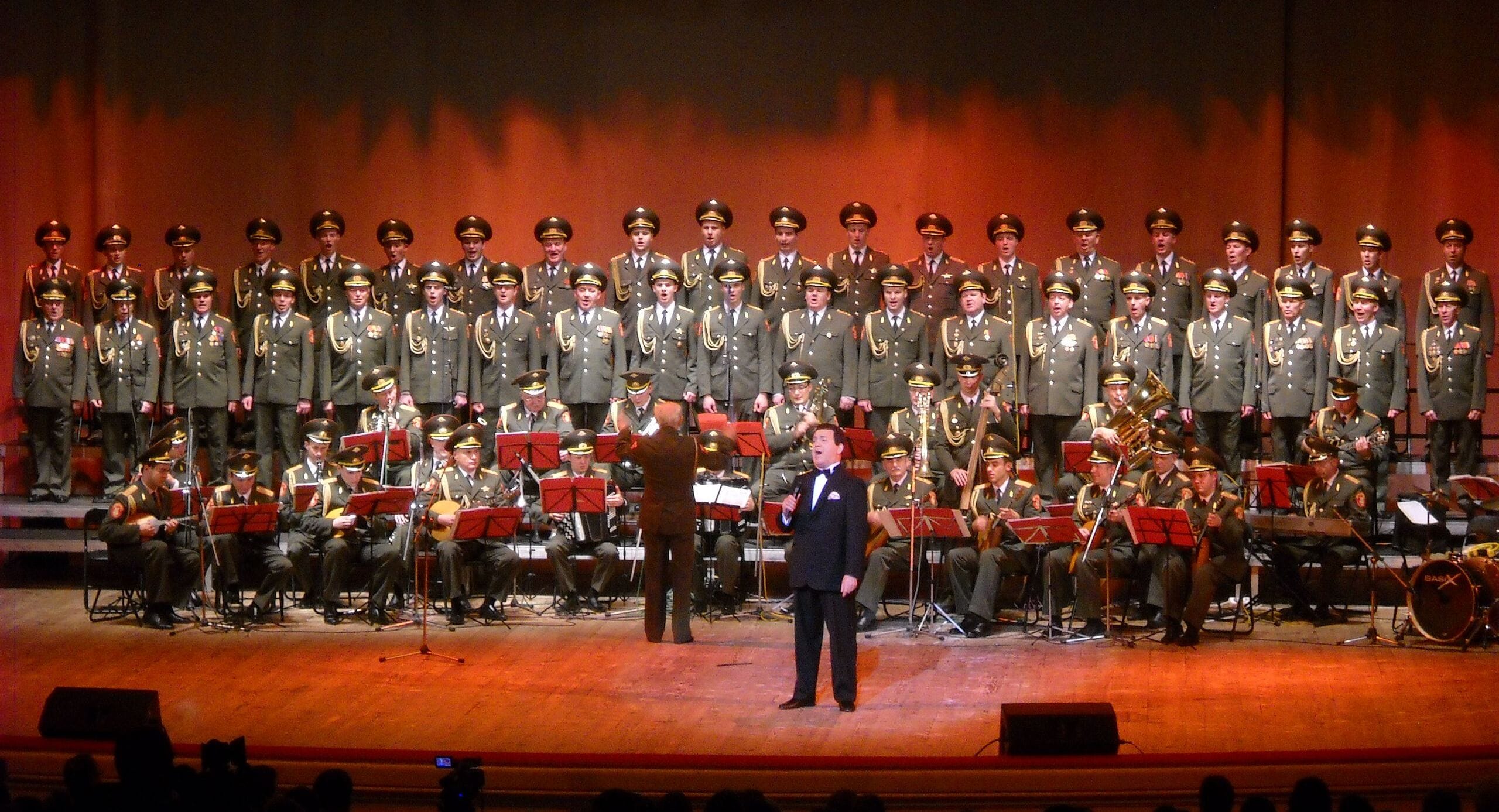In September 2022, Russian media reported that residents of Latvia would no longer be allowed to perform one of the most famous Soviet songs. We have verified the accuracy of such messages.
September 15 in the morning newscast on Channel One appeared a story about an unusual ban allegedly established by Latvian legislation. “The legendary “Katyusha”, a song that is loved by several generations in our country and abroad, should not be played on the territory of Latvia even at family feasts. This was announced by the Riga police with the words that “Katyusha” glorifies the totalitarian regime. This was said in response to an appeal from a group of Russian-speaking pensioners. They asked to clarify what exactly is prohibited in Latvia. The question, given the Russophobic course of the authorities, is more than relevant,” said the presenter. They also spoke about such a ban and a “large fine” for violating it “Moskovsky Komsomolets» And "Komsomolskaya Pravda» - however, these media claimed that the ban only applies to the performance of the song in public places. Some publications (for example, "SVTV» And Eurasia Daily) clarified the source of this information - the Latvian media Baltijas Balss.
A note entitled “Is it possible to quietly sing Soviet songs in a kitchen in Riga - a comment from the police” came out on the Russian version of the Baltijas Balss website on September 14. Journalists handed over to the police a question from a “group of pensioners”; it read in full: “October 13 is approaching - the Day of the Liberation of Riga from the Nazis. We, a group of pensioners, always celebrated this day in a special way - we gathered around the table, sang, and talked. And this year, in the light of all the changes and tightening, we already doubt whether the Day of the Liberation of Riga from the Nazis has been declared an “outlaw” day? Some of our group have Russian citizenship - accordingly, they are afraid of deportation, and others do not want to be blacklisted. Please let me know through the portal whether it is possible to privately celebrate holidays such as October 13 and May 9 in your circle, or are there any penalties for this?”
Baltijas Balss has requested comment from the Latvian police. The head of the public relations department of the Riga Municipal Police, Tom Sadovskis, told reporters that “the law provides for a ban on the use of symbols of totalitarian regimes in public places. In particular, the ban includes, for example, the anthem of the USSR or other songs glorifying the totalitarian regime, such as “Katyusha”, etc.”
The publication in the same note cited quotes from the Latvian law on administrative penalties for offenses in the field of governance, public order and the use of the state language, in which neither “Katyusha” nor other Soviet military songs are mentioned. Article 13 of this document prohibits “display” in public places:
- flags, coats of arms and anthems of the USSR and Soviet republics;
- flag, coat of arms and anthem of Hitler's Germany;
- uniforms of the armed forces and law enforcement agencies of the USSR and Nazi Germany, as well as homemade copies and even individual elements of such uniforms;
- hammer and sickle, as well as a five-pointed star;
- swastika, as well as SS insignia.
Cases where the display of the above symbols “is not associated with the glorification of totalitarian regimes or the justification of committed criminal offenses,” as well as their use “for educational, scientific or artistic purposes,” are not subject to punishment. Otherwise, the court may sentence the violator to a warning or a fine of up to €350 (for a legal entity - up to €2900).
Article 13.1 of the same law (which came into force in May of this year) prohibits “the use in a public place of symbols glorifying military aggression and war crimes.” This measure also provides for exceptions - “cases where there is no purpose to justify or glorify these crimes.” The punishment under this article is identical to that specified in article 13.
The fact that a representative of the Riga Municipal Police cited as an example a song “glorifying the totalitarian regime” also caused bewilderment among Baltijas Balss journalists. Their note ends with the section “From the Editor,” which contains, in particular, the following reflections: “If a punishment is applied, involving a substantial fine, for the performance in a public place of a song glorifying totalitarianism, then logically you need to know for sure that this song really glorifies totalitarianism and is its (totalitarianism) symbol. Okay, everything is clear with songs about Lenin, Stalin and the anthem of the former USSR. But where is the guarantee that the person punished for “Katyusha” will not sue and prove that this is not about totalitarianism, but about love? And "Solar Circle" - for world peace? What will our courts, which don’t even complain about the lack of work, turn into if they have to figure out whether pensioners in a public place sang “Cranes”, “Dark Night”, “Moscow Evenings”, etc. with the aim of glorifying totalitarianism or were they simply remembering their youth in this way?
In other words, there is no list of “banned” songs in Latvian legislation - punishment is directly prescribed only for the performance of Soviet and Nazi official anthems. At the same time, the police representative did mention “Katyusha” in his comment as an example of “a song glorifying the totalitarian regime.” It is not entirely obvious whether this is his personal opinion or the informal position of the Latvian state that is not legally recorded.
We asked colleagues from the Latvian portal Delfi to clarify with Tom Sadovskis what he meant by commenting on Baltijas Balss. “Each case is considered individually. Of course, not every performance of a song automatically qualifies as a glorification of totalitarian regimes; a set of events is assessed,” said the author of a resonant statement from the Riga Municipal Police.
Delfi also requested comment from the Latvian State Police. The spokeswoman for the Riga Regional Office, Gita Grzybovska, responded to our colleagues that “performing the song in itself is not a violation, but it is necessary to take into account the circumstances in which it is performed.” “Each case must be assessed individually. Circumstances and motivation are essential. If a person performs a song, thus glorifying totalitarian regimes, this is an offense,” Grzybowska explained.
Thus, contrary to the statements of Channel One, “Katyusha” and other Soviet military songs can be performed at private events in Latvia. As for public places, the law does not directly list Soviet musical compositions that cannot be played on the streets of Riga and other cities. The performance of “Katyusha” and other songs will be considered an offense only if its purpose is to “glorify the totalitarian regime” - the police emphasize that it is not so much the singing itself that will play a “significant role” in such a situation, but the motivation of the person and the circumstances.
We thank the journalists of the Russian-language editorial office of the Delfi.lv portal for their assistance in preparing this analysis
Cover photo: Loraine / Wikimedia Commons
Half-truth
- Is it true that the UN banned the demolition of the Soviet monument in Riga?
- Is it true that in Riga Russian speakers were banned from traveling on public transport along with other passengers?
If you find a spelling or grammatical error, please let us know by highlighting the error text and clicking Ctrl+Enter.






